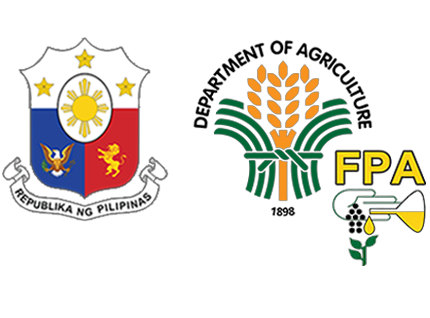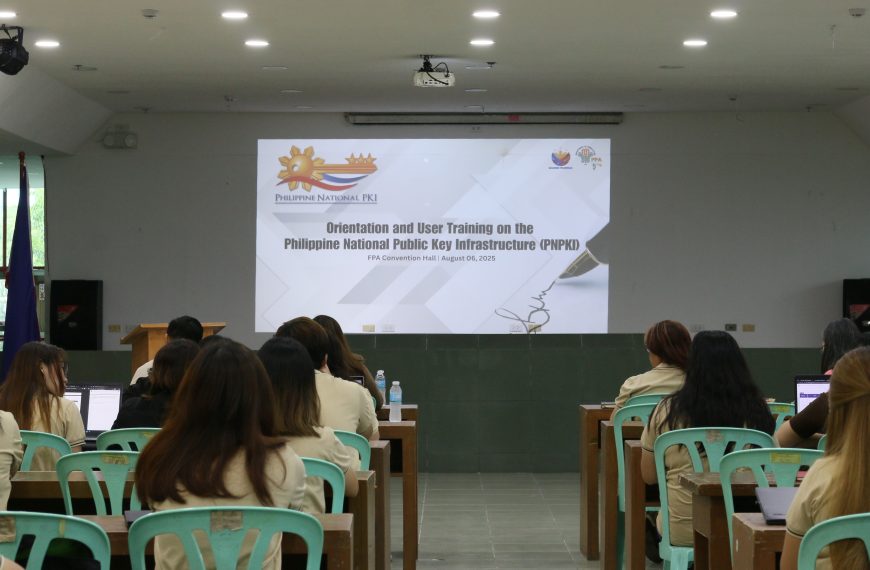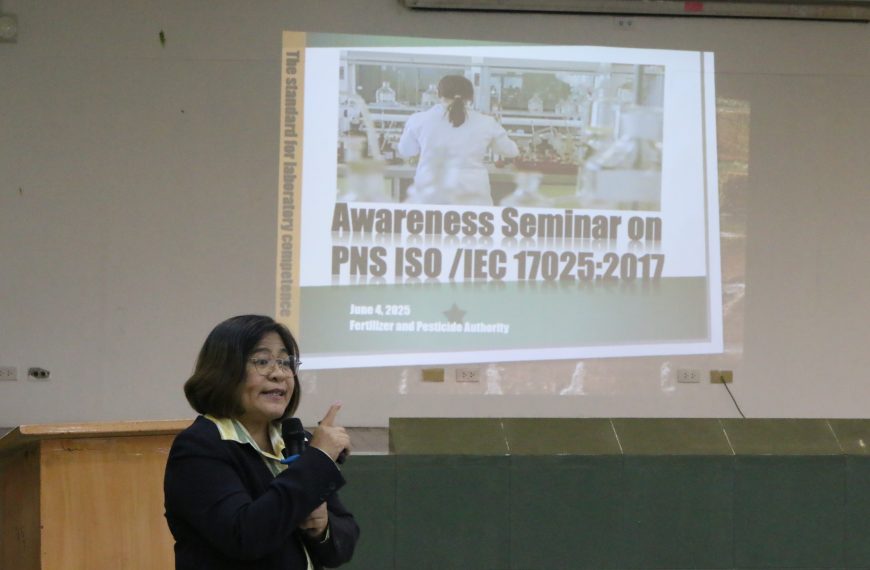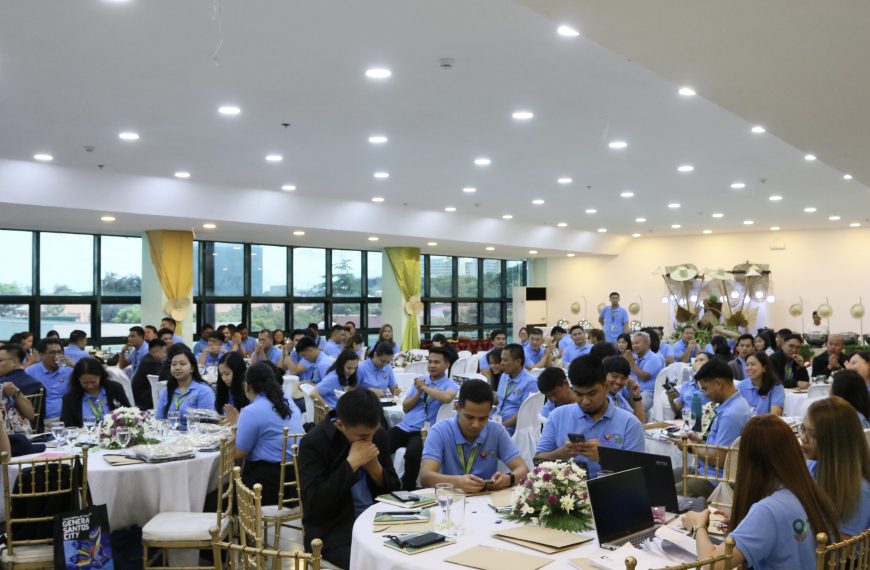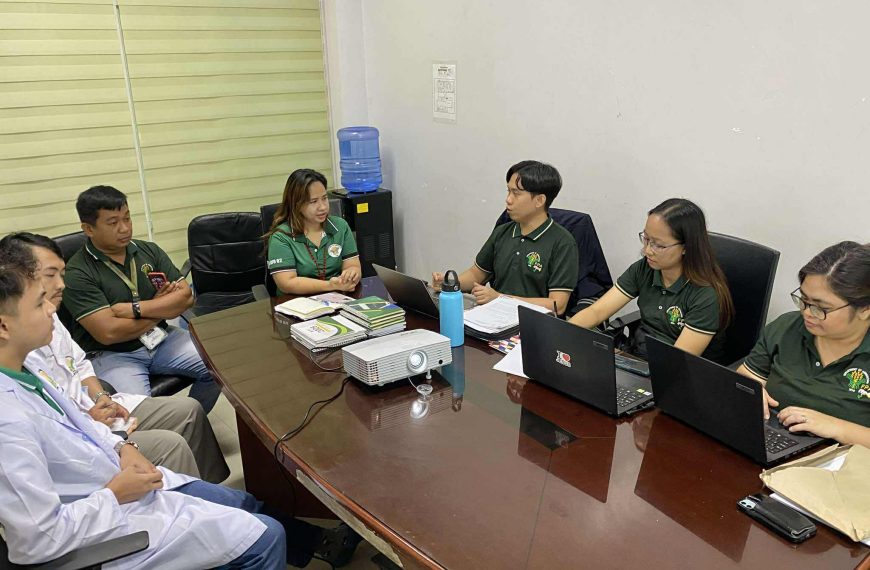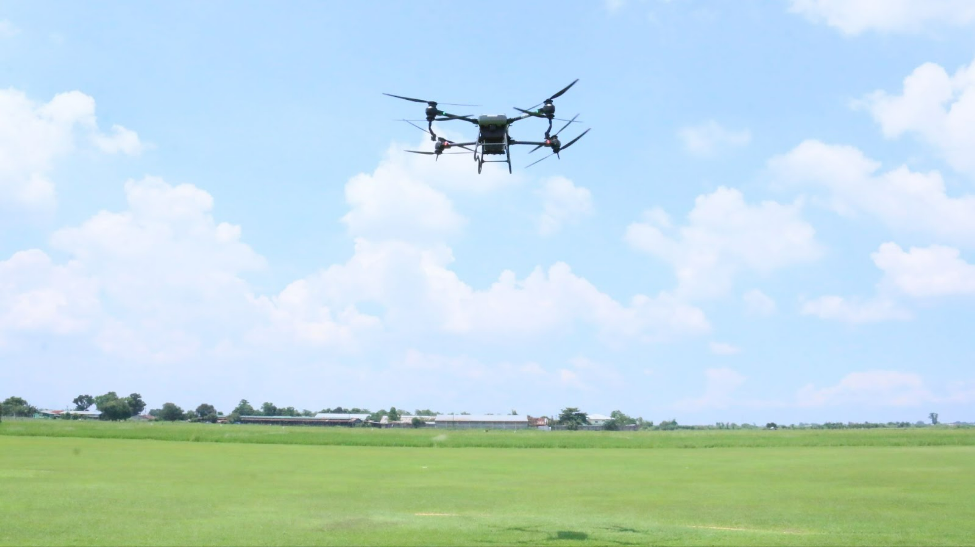
Quezon City | November 11, 2024 – To regulate and promote the safe application of drones in farming, the Fertilizer and Pesticide Authority (FPA) will lead the development of protocols, standards, and monitoring guidelines for drone use in agriculture.
Such initiative is a sub-component of the Drones4Rice project of the Department of Agriculture National Rice Program (DA NRP). It aims to standardize protocols for drone applications of seeds, fertilizers, and pesticides for rice production in the Philippines.
The FPA explained that despite the availability of drones in the Philippines, and regulations for their use in place, additional work is needed to reduce regulatory constraints, standardize operations, develop digital precision agriculture (PA) tools, and scale up the adoption of these technologies.
As part of the commitments, the agency issued FPA Memorandum Circular No. 25 or the “Enhanced Rules and Regulations on Pesticide Application using Remotely Piloted Aircraft System (RPAS)” series of 2024 on 1 October 2024. It is anchored on the principle of promoting the advancement and adoption of drone technology while protecting public health and the environment from the risks inherent in the use of pesticides.
Said guidelines shall be complied with by drone controllers, operators, technicians, service providers, pesticide companies, and pesticide end-users, including but not limited to private and public research institutions, state universities and colleges (SUCs), other government agencies, and Local Government Units, engaged in the business of drone spraying of agricultural pesticides and other agricultural chemicals to control pests and diseases.
To disseminate the guidelines developed to farmers and relevant stakeholders, the FPA will conduct an Information Caravan in strategic rice cluster locations established by the NRP nationwide. It will be piloted in Regions XII and III for the calendar year 2024.
Meanwhile, the Drones4Rice Project aims to reduce production costs and the need for manual labor and attract the youth to farming. The project is also expected to accelerate the rice industry’s digital transformation, one of the core strategies of the DA’s Masagana Rice Industry Development Program 2023-2028.
Likewise, the project is in response to the need to better understand the socioeconomic and behavioral aspects influencing the adoption of such disruptive technologies and the additional benefits of PA for improved sustainability and reduced carbon footprint in rice production.
The project is composed of the following agencies and institutions: DA-NRP, DA-Regional Field Office (2, 4A, and 5), FPA, Bureau of Plant Industry (BPI), DA-Bureau of Agri and Fisheries Standards (BAFS), DA- -Bureau of Agri and Fisheries Engineering (BAFE), Agricultural Training Institute (ATI), Philippine Center for Postharvest Development and Mechanization (PHilMech), Civil Aviation Authority Philippines (CAAP), Civil Aeronautics Board (CAB), CGIAR – Excellence in Agronomy (EIA), New Hope Corporation and AgriDOM. ###
|
Fertilizer and Pesticide Authority (FPA) Online ISSN: 2815-1674
Published by the FPA Information and Communications Team
